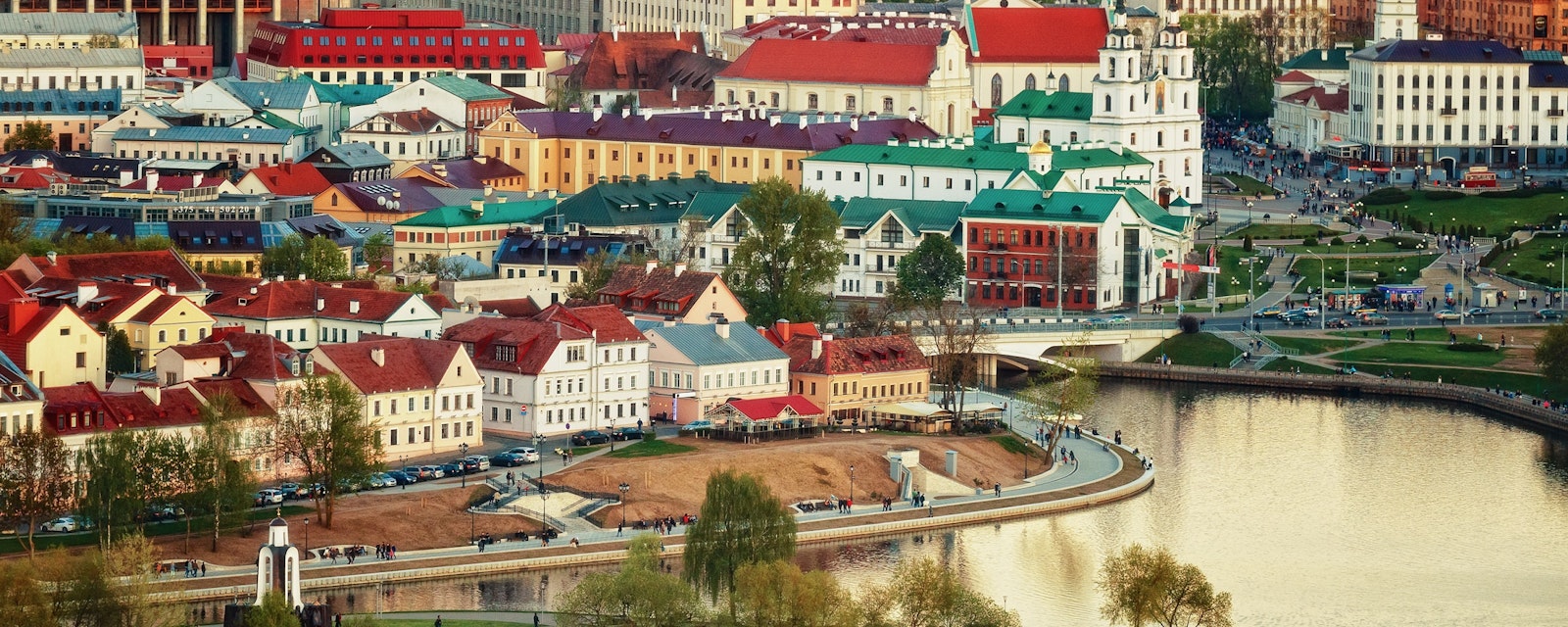The EU will impose new sanctions on Belarus. China and the US are preparing for the virtual encounter of their presidents.
Meanwhile, the presidential race in the Philippines is now set, Turkey’s currency remains under pressure, presidential elections will begin in Chile, and Ghana’s finance minister will present the budget statement.
Chart of the Week
Europe is battling again against the Covid-19 pandemic with cases and hospital admissions rising in many countries. The pandemic’s trajectory has been particularly worrying in countries in Central and Eastern Europe, the Baltics and the Balkans, where vaccination rates are the lowest in the continent. However, cases are also rapidly increasing in countries like Germany, Austria, Belgium, Denmark, and the Netherlands, which has led some governments to consider bringing back restrictions. The Austrian government has introduced a nationwide lockdown for unvaccinated people, while in the Netherlands a three-week partial lockdown has sparked protests over the weekend. Governments will attempt to speed up the rollout of third doses to address the issue of waning immunity. Although in most countries boosters have been so far reserved for older people, the UK has already begun rolling them out to younger cohorts. The return of restrictions might be more likely in places with lower vaccination rates, such as German-speaking countries. However, governments will want to avoid introducing unpopular extensive lockdowns ahead of the winter holidays as far as hospital capacity is not overrun.
What to Watch
EU/Belarus
The EU’s Foreign Affairs Council on 15 November is set to agree a new set of restrictive measures on Belarusian officials and entities deemed responsible for the migrant crisis. Disputed President Alexander Lukashenko could respond with aggressive rhetoric and ramped up pressure along the Polish border, potentially leading to more casualties in the coming weeks. Lukashenko’s threats to cut natural gas flows from Russia to Europe are unlikely to materialize but cannot be completely ruled out. However, any move to reduce gas flows through the 33bcm Yamal-Europe pipeline would have to be coordinated with Russia’s Gazprom which fully owns and operates the pipeline.
US/China
US Secretary of State Anthony Blinken held a phone call with Chinese Foreign Minister Wang Yi on 12 November, three days ahead of a planned virtual summit between US President Joe Biden and Chinese President Xi Jinping. Apart from discussing preparations for the summit, the talks focused on both sides' criticism of the others' recent actions related to Taiwan, according to both readouts.
On the Horizon
ASIA PACIFIC
India
The state government of national capital New Delhi will on 15 November submit a plan to the Supreme Court for a lockdown of the capital following extremely poor quality of air. Delhi is under a blanket of thick smog after farmers began burning crop residue. Vehicular emission and smoke after the diwali festival when large number of crackers leave suspended particulates in the air has aggravated the situation.
Philippines
The final deadline for parties to reconfigure their election line-ups passed on 15 November, and the presidential race is now set. Ferdinand Marcos, Jr., the son of the former autocrat, leads the presidential contenders. Sara Duterte, the president’s daughter, is running for the vice presidency, but she trails comedy actor and senate president Vicente Sotto III. President Duterte will seek a senate seat as a rearguard action. With Marcos leading, the race could be a polarizing one, given his family’s history.
EUROPE
Bulgaria
Incumbent Rumen Radev convincingly won the first round of the presidential elections on 14 November. He remains the favorite against Anastas Gerdzhikov in the second-round runoff on 21 November. In the parliamentary contest, reformist newcomers We Continue the Change (PP) won most mandates and will attempt to form a majority government with three smaller parties. Negotiations will be challenging, but the urgent need for a stable government is expected to facilitate an eventual agreement.
Turkey
The central bank is expected at its next policy meeting on 18 November to cut rates by a further 100 basis points despite soaring inflation. This move would further pressure the currency. Turkey’s beleaguered lira hit an all-time low of 10.05 per 1 USD earlier on 15 November amid concerns about global inflation and central bank policy.
LATIN AMERICA
Chile
The first-round of the presidential election takes place on 21 November. The last polls before the ban on publishing polls came into force put the ultra-conservative Jose Antonio Kast in pole position, followed by the left-winger Gabriel Boric. Boric has had to contend with a damaging internal problem after the Communist Party (PC), his coalition partner, declared its support for the Nicaraguan dictator Daniel Ortega, though Kast then made comments seen as sympathetic to Chile’s former dictator Gen. Augusto Pinochet. The final televised candidates’ debate takes place tonight, 15 November. Separately, tomorrow sees an impeachment vote against President Sebastian Pinera, which does not appear likely to pass but still could impact voting intentions.
MIDDLE EAST AND AFRICA
Ghana
Finance Minister Ken Ofori-Atta is expected to present the 2022 budget statement before parliament on 17 November. Ofori-Atta will need to explain whether the 9.5% deficit target for 2021 will be achieved (the IMF has penciled in 13.5% for this year) as well as lay out plans to curb burgeoning debt, including contingent liabilities, going forward. Ghana’s debt-to-GDP ratio has soared to 81.5% this year, from 35.6% in 2012.





